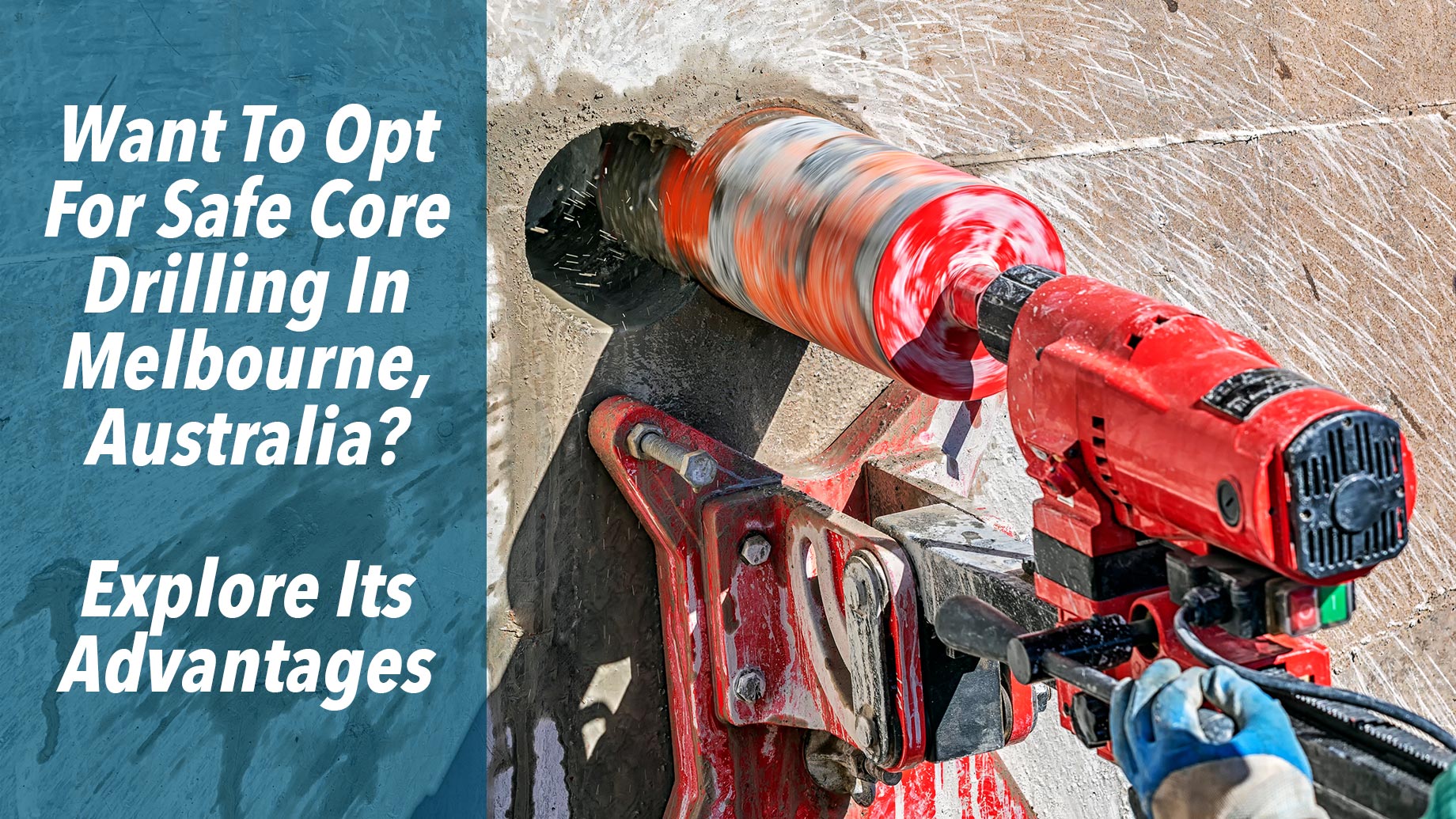
Core drilling concrete is a typical activity on commercial worksites across the globe. Specialists and trained experts perform this task to exploit masonry and concrete on various projects. However, electricians, plumbers, and other renovation or construction professionals may also undertake such core drilling processes occasionally or regularly. Irrespective of the control, quality operators adhere to safety margins and operating guidelines. But how will you know that the contractor is correct for you? If you want professional work in no time, you must be cautious of these aspects. There are a few vital areas to explore before choosing a contractor in Melbourne, Victoria, Australia.
Selection of the drill
When you work with professionals, the first important area that they deliberate is the choice of the drill. There are two significant categories of core drills that include large units and handheld models. These are used on heavy-duty sites and perform distinct tasks in no time. If you want a hole of three inches, a handheld unit is a typical option. However, accurate and safe drilling of the hole with larger diameters will require a ring-mounted or stand model. Manufacturers at Concrete-cutting-perth.com.au/ are producing hybrid drills suited to handle different types of commercial tasks.
The drill motor options
There are three formats in which a core drill motor is available. These are hydraulic, electric, and air. If you go by rules, two factors determine the motor category, which suits your requirement best. The first significant consideration is the power source available on the worksite. For example, if the workplace has a ready electricity supply, you can go for an electric drill. On the other hand, you must consider hydraulic or air power drill options to function safely.
The correct stand attachments
Performing core drilling on a horizontal surface requires expertise. Hence, experts and specialists are the best people for this job. However, professionals have to work on angled or vertical surfaces in several cases. Remember that these situations call for expert handling of different attachments and drilling machines. When working on a slightly curved or flat surface, you need special tools known as vacuum stands. These formats have their pros and cons.
Work on the required hole
When working on holes, depth plays a significant part. For an average homeowner or factory owner, understanding these is not easy. Remember that deeper holes require many equipment and tools. They also need added accessories known as barrel bits to make the work smooth. When these are attached to the drill, the bits function like extenders. Hence, they allow better penetration further inside the targeted surface. Only professionals on a reputed website would know how to work with these. Therefore, your DIY skills will not work here.
Whether it is the choice of the drill bit or considerations regarding the depth of the hole, only professionals know how to perform the task safely. Remember that safety is their top priority. They use different types of gloves, hearing plugs, goggles, and other equipment to keep themselves and you safe and sound.